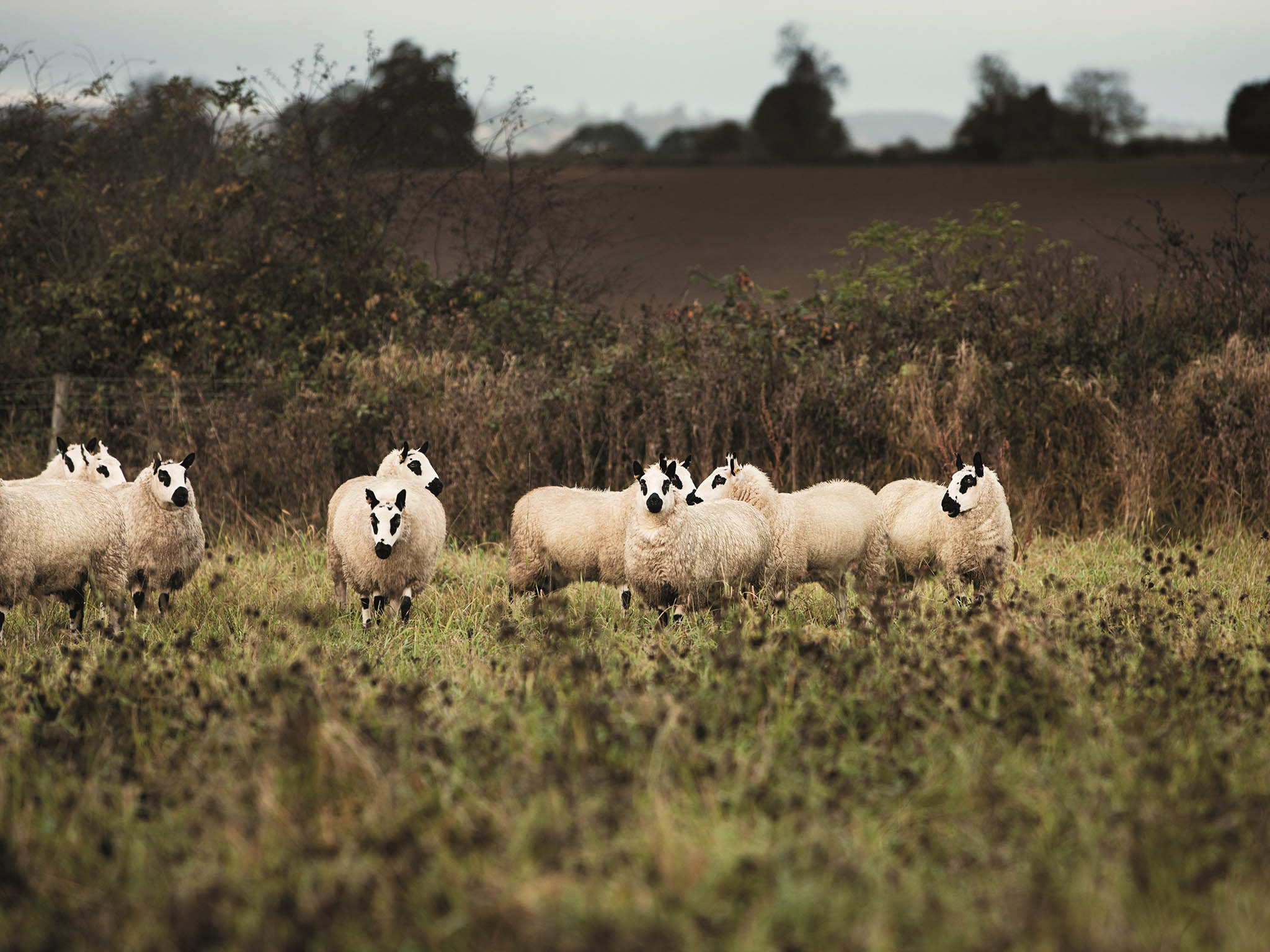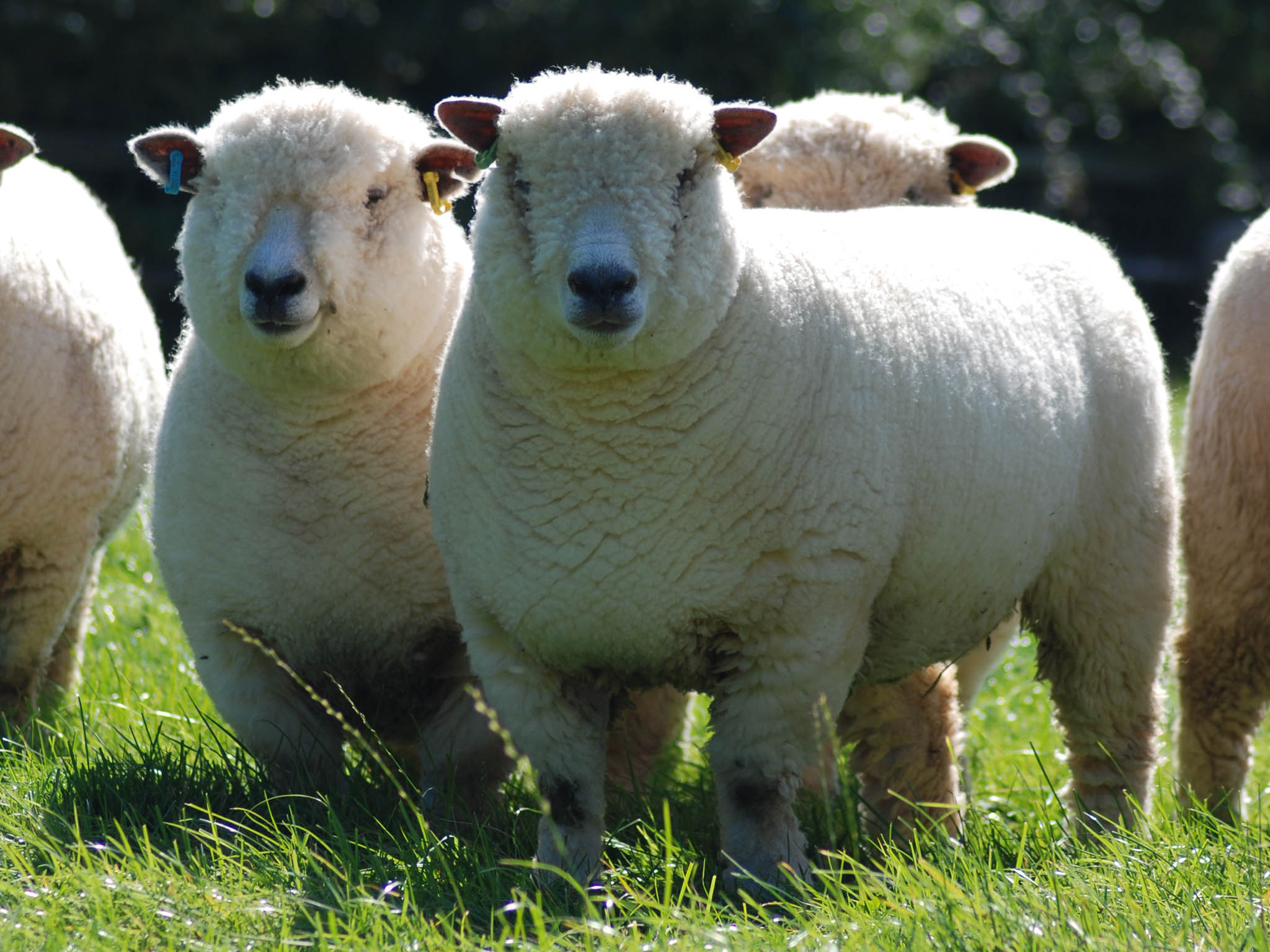Why lamb is the most ethical meat to eat
Forget Easter, now is the best time to eat British lamb, which is one of the most naturally reared animals, says Lizzie Rivera in the final instalment of our series investigating the myths and realities of meat production

Your support helps us to tell the story
From reproductive rights to climate change to Big Tech, The Independent is on the ground when the story is developing. Whether it's investigating the financials of Elon Musk's pro-Trump PAC or producing our latest documentary, 'The A Word', which shines a light on the American women fighting for reproductive rights, we know how important it is to parse out the facts from the messaging.
At such a critical moment in US history, we need reporters on the ground. Your donation allows us to keep sending journalists to speak to both sides of the story.
The Independent is trusted by Americans across the entire political spectrum. And unlike many other quality news outlets, we choose not to lock Americans out of our reporting and analysis with paywalls. We believe quality journalism should be available to everyone, paid for by those who can afford it.
Your support makes all the difference.The importance of us knowing where our food really comes from has been highlighted by yet another food scandal, with the country’s largest supplier of supermarket chicken allegedly tampering with use-by dates.
This suggests it’s time for us to eat less meat or at the very least spread the load of our carnivorous diets by buying from smaller producers and varying our choices, perhaps even by rediscovering our love of lamb – and now couldn’t be a better time.
“The time to eat lamb at it’s absolute best – the highest quality eating, beautiful, flavoursome lamb – is in the autumn of the year. It’s just fantastic,” says Richard Smith, senior farms manager at Daylesford.
As far as farm animals go, sheep arguably get the best deal. But lamb is becoming less popular, and sales have declined by about 11 per cent over the past year alone, according to the Agriculture & Horticulture Development Board.
“If you’re going to eat meat, it’s probably one of the most naturally reared animals,” says sheep-breeder Tim White. “The vast majority of lambs will have been reared on grass.”
Sheep fatten up nicely by simply foraging in fields. They’re also traditionally grazed on land that doesn’t have much other agricultural use – such as poor quality hillsides – which means it also makes economic sense to allow them to roam free.

A rising number of farmers are turning to corn to fatten up their sheep in time for the Easter lamb market. But thankfully, this is still predominantly field-based.
“If it makes up part of their diet that’s not necessarily detrimental to their welfare,” says Smith, who is at the forefront of farm animal welfare issues. “However, the eating quality is different. A high-protein diet changes the texture and cooking quality. Lamb shouldn’t be super lean. Fat produced from grass creates a lovely flavoursome addition to the meat.”
Pipers Farm director Peter Greig agrees. “There are also increasingly strong arguments that say red-meat protein produced on a purely grass-based diet has more nutritional benefits,” he says.
Variety is the spice of life
For a nation of meat- and animal-lovers, lamb is one of the better dinner options.
However, the wide variety of breeds used in British farming, and the more natural nature of sheep rearing, means lamb bought in supermarkets tends to vary in taste and texture. This inconsistency also doesn’t sit particularly well with supermarket shoppers who are encouraged to like uniformity.
Most British shoppers also only really buy the chops or leg of lamb. Rarely bought cuts such as brisket, mince or shoulders are exported to Europe. Plus, we like our lamb chops chunky, so a lot of our Welsh lamb – which is traditionally smaller – also get sent to Spain.
“Something astonishing like 30 per cent of lamb produced in the UK fails to get into the specification for supermarkets because of this,” says White, founder of the Proven Wool Shedding Sheep.
How to buy the best lamb
Most cooks will advise you go directly to the farmer or a good butcher to source the best lamb.
Pipers Farm prides itself on developing a system that offers a consistent flavour of lamb all-year round. Greig says they sell out of all cuts, including the offal – which from a healthy animal is a source of wonderful nutrition. They deliver straight from its farm to your door. Daylesford also operates on a nose-to-tail philosophy. Its meat is available to buy in-store or online, as well as on Ocado
Have you tried hogget?
Lamb: a sheep up to 14 months old that hasn’t given birth, commonly eaten from five months upwards.
Hogget: at 15 or 16 months old the lamb will erupt two dominant teeth in its bottom jaw, that’s a true hogget. It’s increasingly popular on British menus and is very similar to lamb, with a slightly deeper taste and finer grain.
Mutton: a sheep that’s two years old or above, again offering a deeper flavour.
When buying lamb, you’re ideally looking for one that has been completely grass-fed. A good butcher will be able to suggest more unusual cuts, which will be cheaper, and advise you on how to cook them.
White is partial to a slow roasted shoulder, cooked Moroccan style with turmeric and cumin plus onions and wine.
“I also like a good stew made out of neck,” he says. “It’s an undervalued cut, so I end up with a lot of it in the freezer. It’s got a good strong taste. I slow-cook it in a nice stew and it comes up nice and tender, with no excess of fat.”
Greig quickly sears his neck on a fire pit, leaving it pink.
Castration and tail-docking
There are welfare issues to be aware of when it comes to sheep farming. Transportation, castration and tail-docking are the most debated ones.
As in every profession some make better farmers than others – which is why it’s important to be confident that you’re buying from someone who has good husbandry skills, someone who respects that each animal is a sentient being and is treated that way.
It's also worth checking, whenever possible, that the lamb you're buying was stunned before slaughter. Compassion in World Farming has calculated that a staggering 3.5 million sheep and goats are subject to non-stunned slaughter in the UK annually, based on the newly-released Food Standard Agency figures.
Look out for #GOATOBER
Restaurants all over the country will also be featuring goat meat on their menus for the whole of this month in an attempt to raise the profile of this tasty but largely uneaten meat in the UK. About 40,000 male billy goats are senselessly killed at birth as a byproduct of the dairy industry. cabrito.co.uk/goatober
Most farmers agree that the initial discomfort following the most common tail-docking procedure (placing a rubber band over the tail to restrict the blood flow so it falls off) far outweighs the problems not doing this can cause later in life – wool maggots caused by a build up of faeces.
White doesn’t dock his sheeps tails. His chosen breed, the Wiltshire Horn, naturally shed their own wool and so it isn’t necessary. He doesn’t castrate his male lambs either.
However, again, most farmers are in favour of this practice. “They have a few minutes of initial discomfort when you initially do it, from then on they have a very relaxed and greatly enhanced quality of life,” says Greig. “I have no doubt about that whatsoever.”
Improved welfare does come at a higher cost to consumers, but the continuous chicken scandals prove what happens when meat – and animal welfare – is sold cheaper than a cup of coffee.
As Smith says: “Food is too cheap and we take it for granted. If people knew what it took to get that meat to their plate, they’d have more respect for it.”
Lizzie Rivera is the founder of lifestyle website BICBIM that focuses on food ethics and sustainability. The site is currently crowdfunding. Find out more at bicbim.co.uk/crowdfunding
Join our commenting forum
Join thought-provoking conversations, follow other Independent readers and see their replies
Comments